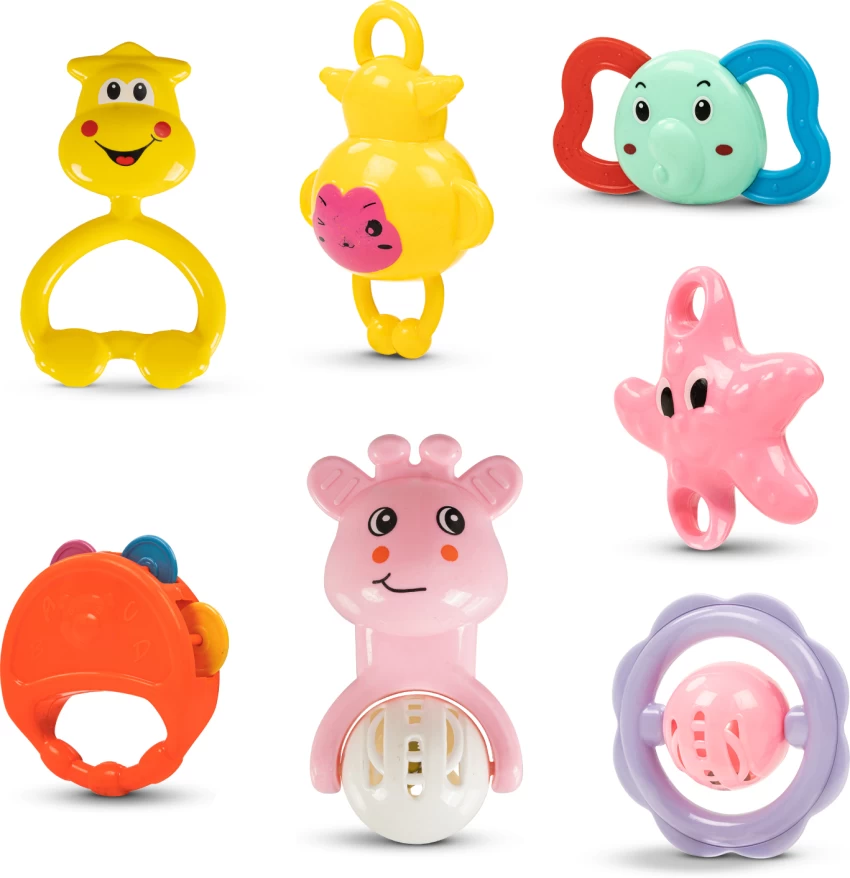
When it comes to nurturing your child’s development, choosing the right toys is essential. Educational baby toys not only provide entertainment but also promote cognitive, motor, and social skills. In this article, we’ll explore some of the best educational toys for babies, ensuring you make informed choices for your little one.
The Importance of Educational Baby Toys
Educational toys play a crucial role in early childhood development. They help infants and toddlers explore their environment, improve fine motor skills, and encourage imaginative play. Here’s a breakdown of how different types of educational toys can benefit your child:
- Cognitive Development: Toys that challenge a baby’s problem-solving skills, such as shape sorters or stacking toys, enhance cognitive growth.
- Motor Skills: Toys like baby walkers and textured balls help develop gross and fine motor skills.
- Social Skills: Group play with educational toys encourages interaction, teaching kids valuable social skills.
Best Educational Toys by Age
For Babies 0-6 Months
- Black and White Educational Baby Toys: High-contrast toys stimulate visual development.
- Soft Rattles and Teethers: Great for sensory exploration and motor skill development.
For Babies 6-12 Months
- Montessori Baby Toys: Simple, open-ended toys promote independent exploration and creativity.
- Baby Einstein Toys: Engaging musical toys that introduce cause and effect.
For 1-Year-Olds
- Best Educational Toys for 1 Year Old: Look for interactive toys that encourage movement, like baby walkers and push toys.
- Wooden Educational Baby Toys: Durable and safe, these toys often include blocks or puzzles that challenge a child’s thinking.
For Toddlers (2 Years and Up)
- Educational Toys for 2 Year Olds: Toys that promote imaginative play, such as dolls or kitchen sets, foster creativity and social interaction.
- Educational Toys for 3 Year Olds: Puzzles and building sets enhance problem-solving and fine motor skills.
Popular Categories of Educational Baby Toys
1. Musical Toys
Musical toys like the Lumi White Noise Machine for Babies & Adults can soothe and entertain while also introducing rhythm and sound recognition.
2. Sensory Toys
Toys designed for sensory exploration, such as textured balls and soft blocks, engage infants and toddlers in tactile learning.
3. Building and Stacking Toys
These toys not only entertain but also teach concepts like balance and spatial awareness.
4. Interactive Learning Toys
Electronic toys that respond to touch or voice, such as Baby Learning Toys by VTech, offer dynamic play experiences that engage young minds.
5. Books and Reading Toys
Educational baby books, especially those with textures or flaps, encourage early literacy and language development.
Safety Considerations
When choosing educational baby toys, always prioritize safety. Check for non-toxic materials, avoid small parts for younger infants, and ensure the toys meet safety standards. Reading labels like “BPA-free” or “phthalate-free” is essential for peace of mind.
Here are some trending questions and answers related to “Educational Baby Toys”:
1. What are the best educational toys for a 1-year-old?
The best educational toys for 1-year-olds include shape sorters, stacking blocks, and musical toys. Look for options that encourage fine motor skills, problem-solving, and sensory exploration.
2. Are electronic toys good for babies?
Yes, electronic toys can be beneficial when used in moderation. They often feature interactive elements that promote learning and engagement, but it’s essential to choose toys with age-appropriate content and ensure screen time is balanced with physical play.
3. What types of educational toys are suitable for infants aged 0-6 months?
For infants, high-contrast black and white toys, soft rattles, and sensory balls are ideal. These toys stimulate visual and tactile development, encouraging exploration.
4. How do educational toys help child development?
Educational toys foster various developmental skills, including cognitive growth, motor skills, and social interaction. They encourage exploration and learning through play, which is crucial in early childhood.
5. What are Montessori baby toys?
Montessori toys are designed to promote independent play and learning. They often focus on open-ended play, sensory exploration, and practical life skills, aligning with the Montessori educational philosophy.
6. Are there specific educational toys for babies 6-12 months?
Yes, toys like soft blocks, stacking rings, and teething toys are great for babies in this age range. They help develop fine motor skills and encourage problem-solving through play.
7. How can I make educational toys for toddlers at home?
You can create DIY educational toys using household items. For example, use cardboard boxes for building, or create a sensory bag filled with rice and small toys for tactile exploration.
8. What features should I look for in educational toys?
When selecting educational toys, look for those that are age-appropriate, made from safe materials, promote active engagement, and encourage skill development like problem-solving and creativity.
9. How do I introduce toys to my baby?
Introduce toys gradually, starting with a few at a time. Observe your baby’s interests and preferences, and rotate toys to keep playtime fresh and engaging.
10. What are the benefits of educational baby dolls?
Educational baby dolls can help develop social skills, empathy, and nurturing behavior in children. They also encourage imaginative play and can be a great tool for storytelling.
Conclusion
Choosing the right educational baby toys can significantly impact your child’s development. From stimulating cognitive skills to enhancing physical abilities, these toys provide invaluable learning opportunities. By selecting toys suited to your child’s age and interests, you unlock a world of fun, learning, and growth that will support their development for years to come.
Explore our selection of best educational toys for 1 year old and beyond, and watch your little one thrive through play!